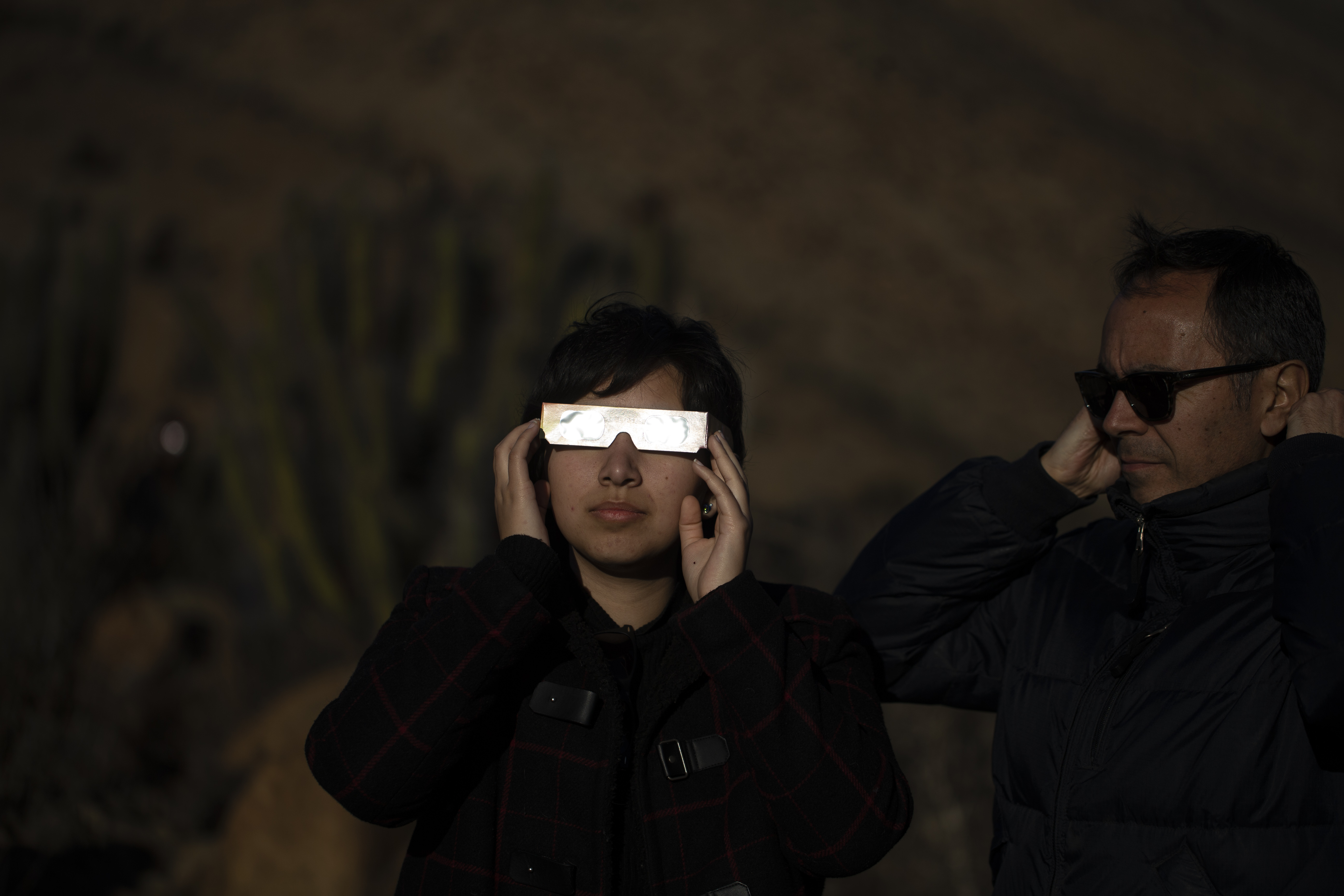New York prison will let inmates go outdoors to view eclipse after lawsuit

People watch a total solar eclipse in La Higuera, Chile, on July 2, 2019. (AP Photo/Esteban Felix, File)
Six New York prison inmates who sued the state’s corrections department over a planned lockdown that would have forced them indoors during Monday’s solar eclipse will be allowed to view the celestial phenomenon outside under a settlement agreement, their attorneys announced Thursday.
The inmates at Woodbourne Correctional Facility in Sullivan County, N.Y., were objecting to a statewide plan to confine prisoners to their housing units for safety reasons from 2 p.m. to 5 p.m. on Monday as millions are expected to gather to watch a total solar eclipse sweep across the United States. The lockdown violated their constitutional rights, the inmates argued, because they sought to watch the eclipse in the exercise of their religions.
Thursday’s settlement affirmed that argument and could carry weight as the state evaluates other requests for religious accommodations to view the eclipse, attorneys for the inmates told The Washington Post.
“We are pleased that, in response to our lawsuit alleging religious discrimination, New York State has entered into a binding settlement agreement that will allow our six clients to view the solar eclipse in accordance with their sincerely held religious beliefs,” Christopher L. McArdle, an attorney representing the inmates, said in a statement.
New York Department of Corrections and Community Supervision spokesperson Thomas Mailey said the department had begun reviewing religious accommodation requests for the six inmates before the lawsuit and decided to permit them to view the eclipse.
“The lawsuit came to an appropriate resolution,” Mailey said in a statement.
The inmates, who argued that the event carried religious significance in Christianity, Islam, Santería and atheism, will be allowed to watch the eclipse outdoors in the prison yard with safety glasses provided by the corrections department, said Madeline Byrd, another attorney for the inmates.
“It will definitely be the experience they asked for,” Byrd said.
They previously faced the prospect of being confined to their housing units at Woodbourne on the day of the eclipse in the afternoon, when outdoor exercise is normally permitted, the inmates alleged in their lawsuit. Jeremy Zielinski, an atheist and one of the plaintiffs, was granted permission to view the eclipse on religious grounds in March before the statewide lockdown was announced, according to the lawsuit.
The corrections department is instituting the lockdown across its facilities for safety reasons and will distribute glasses for staff and inmates to “view the eclipse from their assigned work location or housing units,” Mailey previously told The Post.
In statements filed in court, the six inmates explained why the solar eclipse would be an important occasion for their respective beliefs: as a time to perform a special Muslim prayer, a spectacle evoking a scene from the New Testament, and a gathering to celebrate science and reason.
They may not have been the only New York inmates challenging the lockdown under those grounds. Mailey said Thursday that his department had begun reviewing accommodation requests to view the eclipse, including requests from the Woodbourne inmates, before the lawsuit was filed. He did not respond to inquiries on how many other requests are under review and how many the department has granted or denied.
Byrd said she hoped Thursday’s settlement would set a precedent for other inmates hoping to view the eclipse.
“We’re hopeful [the corrections department] will do the right thing,” Byrd said. “We’re hopeful they will also review the other requests and grant them.”
Dan Rosenzweig-Ziff and Justine McDaniel contributed to this report.



